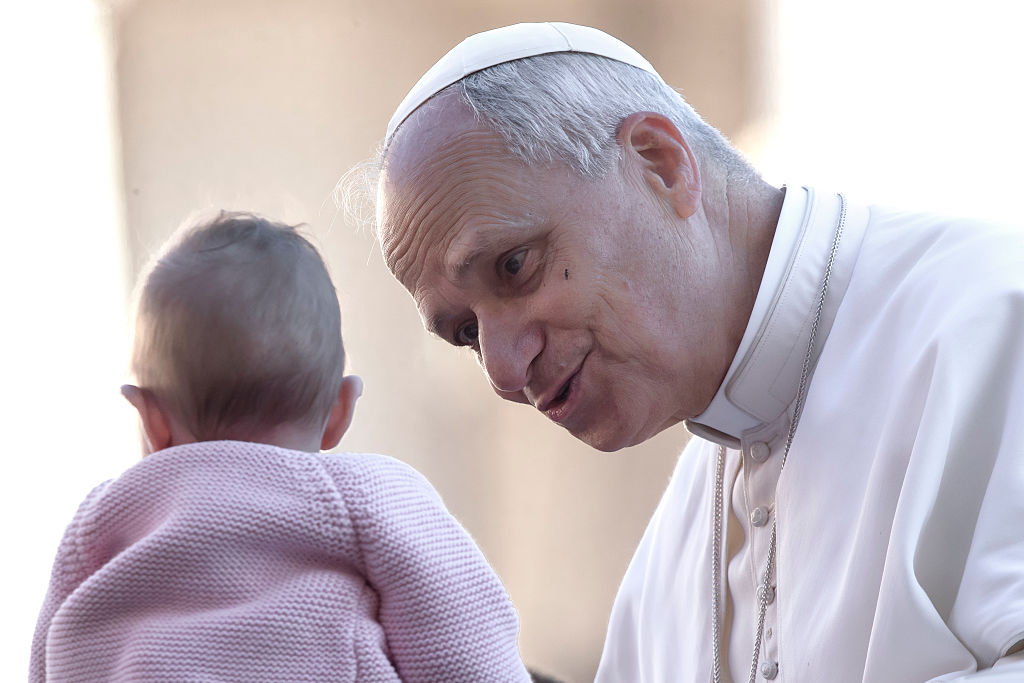After the Pope warned that artificial intelligence risks eroding personal bonds in healthcare, we asked experts for their thoughts – and heard how, in many cases, AI is already helping to strengthen them.
AI has a “pervasive” influence on human life – especially in medicine and healthcare – Pope Leo said on Monday to participants at the International Congress, ‘AI and Medicine: The Challenge of Human Dignity’ in Rome. He cautioned that no technology can replace the personal bond between patients and medical professionals, and said that AI must enhance, not erode, human relationships and care.
While there is consensus among healthcare professionals that AI cannot replace interpersonal relationships, they told Euractiv how AI already makes their lives easier.
According to the European trade association COCIR, representing the radiological, electromedical and healthcare IT industry, artificial intelligence supports clinicians in detecting diseases earlier, personalising treatments, and reducing routine workload.
“This allows them to focus more on their patients,” stressed a COCIR spokesperson.
Saving time
The argument is backed up by studies that show AI tools, like speech recognition, can save clinicians up to an hour a day, time that can be reinvested in patient care.
Marco Marsella, director of digital, EU4Health, and health systems modernisation at the European Commission’s DG SANTE, argued during the European Health Forum Gastein in October that responsible use of AI could bring a “double dividend” by improving care and strengthening Europe’s technological sovereignty.
Yet not all voices were optimistic about AI’s entirely positive impact on healthcare.
In Gastein, Stefan Eichwalder, director of the health systems division at Austria’s health and social affairs ministry, struck a similar note as the Pope, cautioning that digital tools can become a “bitter pill.” He cited a survey linking the use of electronic health records to higher stress and burnout among GPs: “Too often, tech meant to support health professionals ends up undermining them,” he said.
Ethical standards
Pope Leo also raised the issue of trust regarding AI: “Historical events stand as a warning: the instruments at our disposal today are even more powerful and can produce a still more devastating effect on the lives of individuals and peoples.”
According to him, it’s easy to see how technology and medical research become destructive when used to advance “anti-human ideologies”.
Euractiv has previously reported that far-right parties in the European Parliament often use health issues to advance their own agendas.
The trade association COCIR told Euractiv that it take those fears seriously.
According to the organisation, the industry commits to ethical AI and ensures safe, transparent devices that meet EU standards. To keep technology human-centred, they propose dialogues between healthcare professionals, ethicists, policymakers, and faith leaders so that “technology truly serves people”.
According to a Grigori Rogge researcher from the Chair of Management and Innovation in Healthcare at the University of Witten, “the best-case scenario would be for AI to be deployed in a way that supports, rather than replaces, the relationships between healthcare professionals and patients”.
“The Pope is right,” trust, care, and human contact are crucial for this type of healthcare, Rogge explained.
(bms, aw)

